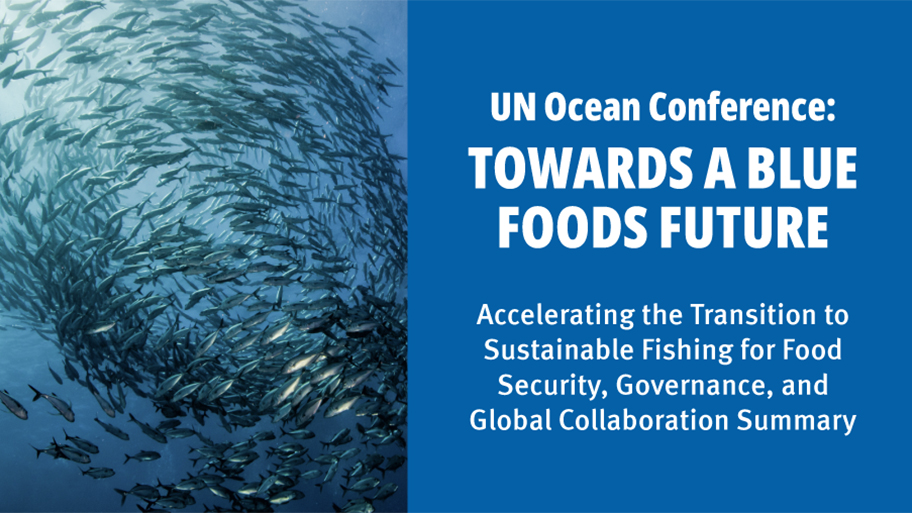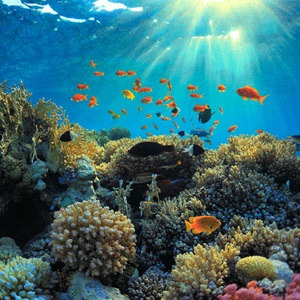The third UN Ocean Conference is a pivotal moment to accelerate global action to protect and sustainably manage the world’s oceans — at a time when it’s urgently needed.
The ocean faces mounting pressure from climate change, overfishing, and biodiversity loss - exacerbated by the growing global demand for seafood. Since the last Conference in 2022, momentum has built around efforts to address these challenges.
With just five years left to achieve the Sustainable Development Goals, it is vital that we accelerate
progress on delivering SDG 14, especially target 14.4: to regulate harvesting, end overfishing, and rebuild fish stocks.
The conference is co-hosted by France and Costa Rica and held in Nice, France from 9-13 June 2025. The
MSC will be attending to champion sustainable fisheries management as a vital part of the solution for ocean health, food security, and biodiversity.
Join us at the following events:

Towards a Blue Food Future: Accelerating the Transition to Sustainable Fishing for Food Security, Governance, and Global Collaboration
Join the Government of Indonesia, the Government of Mexico, the MSC, fishing representatives and other important stakeholders for a discussion of the role sustainable blue foods can play in transforming our food systems, reversing biodiversity loss, and reducing emissions. While aquaculture holds promise, wild fisheries remain critical—especially in the developing world. Yet managing a resource that crosses borders and fleets presents real governance challenges. This event will highlight the importance of international collaboration, resource mobilization, and support for small-scale fisheries to accelerate progress.
Date: Tuesday 10 June, 5pm – 6pm followed by a reception with drinks and canapes
Location: Hotel Aston La Scala, Nice
Register here
Sustainable Seas: A Holistic Approach to Thriving Fisheries and Oceans, an MSC and EBCD event
This event will follow-up on high level commitments to showcase operational fisheries management examples from around the world that have transitioned to sustainable fishing and food systems. The examples from across sectors, will highlight solutions
for a holistic approach incorporating policy, regulatory and financial mechanisms. These actors are successfully integrating scientific assessments and innovation, socioeconomics, and adaptive fisheries management to effectively advance SDG14.
Date:Monday 9 June, 12:15 – 13:00
Location: Green Zone - Trade and Blue Food House, La Baleine
MSC Virtual Event in China, Green Zone: Blue Driven: Dialogue on Sustainable Fisheries and the Ocean Economy
This virtual side event will convene government and industry leaders to explore how policy frameworks, market incentives, and voluntary certification can collectively support SDG 14—Life Below Water.
Organisers:Marine Stewardship Council (MSC), Guangdong Overseas Fisheries AssociationSupporting Organisations: China Chain-Store & Franchise Association, China Aquatic Product Processing and Marketing Alliance
Date: Tuesday 10 June, 16.30pm CST (UTC +8)
Location: Attendees can join online or in person. 15F, Tower B, Huahai Financial Innovation Center Intersection of Menghai Avenue & Binhai Avenue Nanshan Street, Nanshan District Shenzhen, China
Register here



/biodiversity-and-fishing-spotlight.tmb-thumb300.jpg?Status=Master&Culture=en&sfvrsn=7d1e89b7_1)